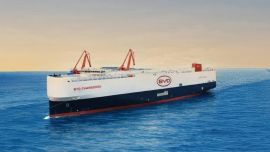President Alberto Fernández asked for "greater flexibility to honour" Argentina’s debt with the International Monetary Fund (IMF), when addressing a methane panel organised by the United States in the framework of the COP26 summit in Glasgow.
"We need greater flexibility to honour that debt, in deadlines and interest rates. We are ready to link part of its payment to the indispensable investments in green infrastructure," emphasised the Peronist leader, who faces upcoming legislative elections on November 14.
In the presence of United States President Joe Biden, the Frente de Todos leader explained: "We are renegotiating a loan conceded to my country for US$57 billion, a greater sum than destined by the IMF to all the countries of the world to combat the pandemic. It also signifies half the budget committed by the world to attend to climate change, a commitment yet to be met. This demonstrates a degree of inconsistency which we must correct."
During an event on methane organised by the United States, Fernández thanked "the effort of the international community for the historic issue of Special Drawing Rights from the IMF with the purpose of overcoming the effects of the pandemic."
"We also need the attention and sensitivity of that same community to overcome the obstacle facing Argentina with its debt with the IMF. Doing that successfully would permit us to accelerate our environmental transition," he underlined.
Fernández further pointed out: "Argentina has returned to growth in the post-pandemic stage. This year we will grow nine percent. The future of my country lies in developing a knowledge economy with technological capacities, adapting its productive matrix with hydrogen –among other sources of renewable energy-, and betting on electro-mobility," he added.
Along these lines the president affirmed that "environmental sustainability goes hand in hand with social sustainability," considering it "necessary that debt payment be sustainable to guarantee solid economic recovery and social inclusion. As Pope Francis pointed out, we build together the globalisation of solidarity so that the globalisation of indifference does not triumph."
Turning to the subject of the panel, Fernández said: "The Argentine Republic celebrates President Biden’s Global Commitment initiative renewing United States leadership in environmental and climate change issues. Our country has already moved into action. Our “Contribución Determinada Nacional” programme implies the reduction of all greenhouse gases, including methane, while actively promoting the adoption of state-of-the-art technologies to capture methane and reduce fugitive emissions."
The president further indicated that Argentina appeals to the "principle of common responsibility but differentiated in the framework of a fair transition. We need innovative means of implementation. There are no single models. In the case of Argentina, the contribution of our agro-bioindustry to world food security must not be excluded from climate change negotiations in order not to generate new forms of protectionism," before concluding: "We recognise the pillars of sustainable development as social, economic and environmental."
Diplomatic nod
In a diplomatic nod to Argentina, leaders at the G20 Summit in Rome last weekend asked their finance chiefs to look at the surcharge policy at the International Monetary Fund.
The G20 communiqué mentions that “our finance ministers look forward to further discussion of surcharge policy at the IMF Board in the context of the precautionary balances interim review.”
The IMF charges countries a rate of 200 basis points, or two percentage points, on outstanding loans above 187.5 percent of a country’s quota, growing to 300 basis points if a credit remains above that percentage after three years. Argentina’s debts far exceed its quota at the IMF.
An attempt to obtain temporary relief for the country was already turned down earlier this year so while this G20 gesture is promising, it’s still far from clear whether the IMF board will ultimately agree to a waiver. Surcharges are an important part of the Fund’s revenues.
– TIMES/NA





















Comments